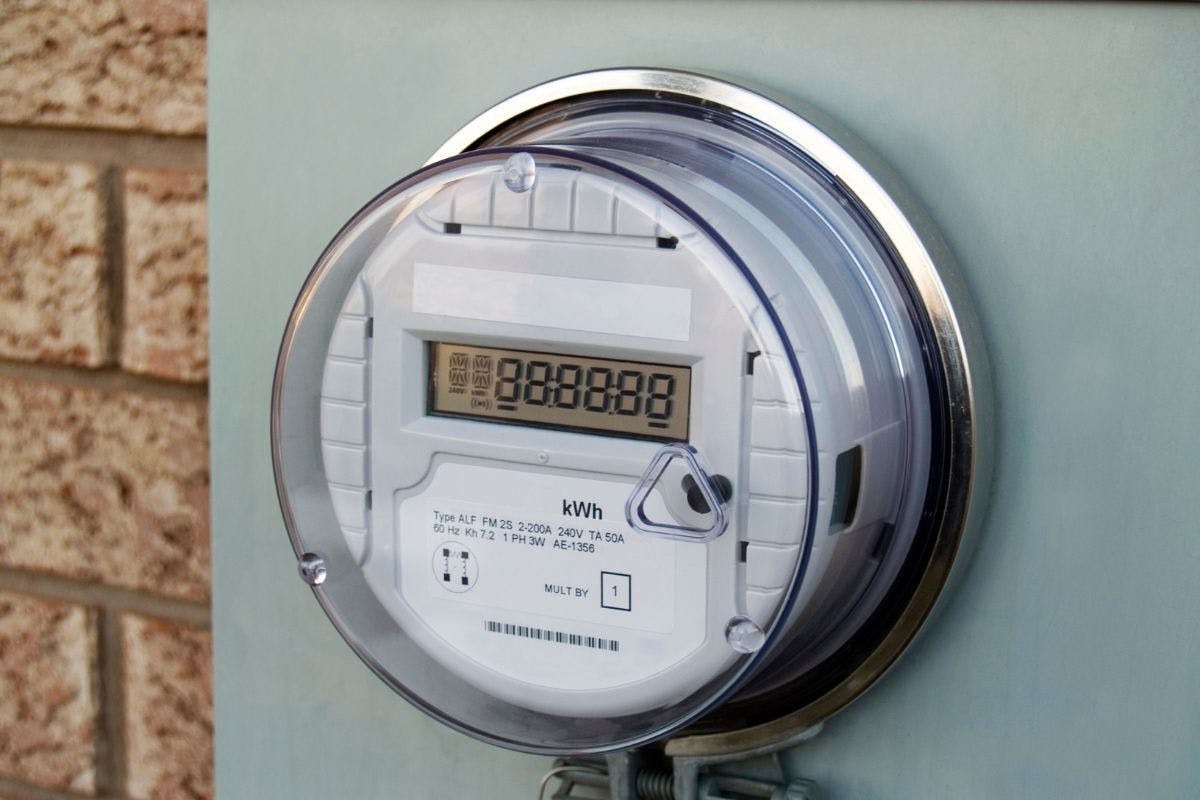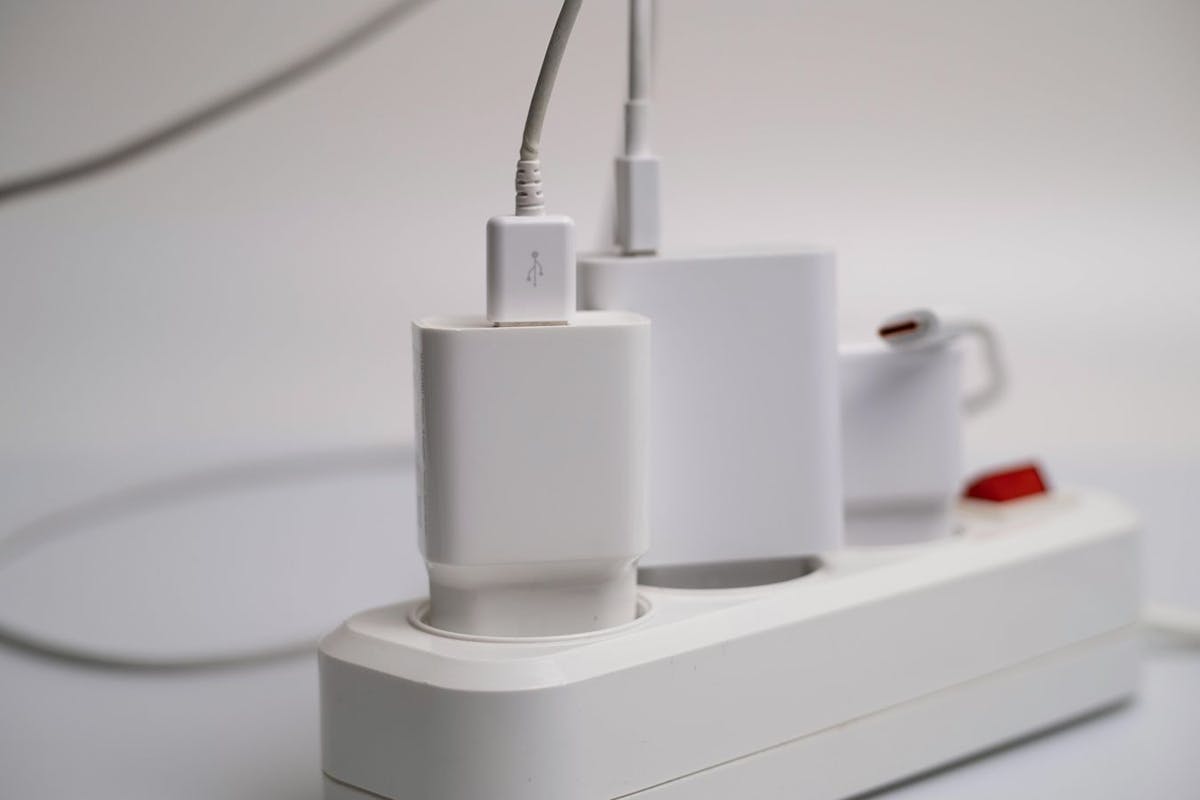Kilowatt-Hours (kWh) and Your Energy Usage Explained
Last edited

Author
Andrew Giermak
Solar and Electrification Writer and Editor

Editor
Andrew Blok
Electrification and Solar Writer and Editor

The numbers, rates, acronyms, abbreviations, and fine print on an electric bill can be confusing. One universal measurement on all electric bills is the kilowatt-hour. Generally speaking, if you use fewer kWhs, you’ll pay less.
Understanding watts, kilowatt-hours, and cents per kWh can help you better grasp your home’s energy consumption, your monthly bill, and how going solar with home solar panels and taking steps toward home electrification might make sense for your home.
See how much you can save with home energy changes
What does a kWh measure?
Kilowatt-hours are a measurement of electric power, commonly used to quantify home electricity consumption, solar energy production, or EV battery capacity in the United States.
Breaking down kWh measurements piece-by-piece, a kilowatt is a unit of energy equal to 1,000 watts and an hour is… well, an hour, or sixty minutes. Therefore, a kilowatt-hour is the amount of energy equal to 1,000 watts generated, transferred, or consumed over a one-hour time period.
What is 1 kWh of electricity equal to?
To understand what 1 kWh of electricity is equal to, two key components of the equation must be considered:
- The electric device’s wattage
- The run-time
For instance, let’s say you need to run a 500-watt device. If you power this device for 1 hour, then 500 watt-hours (or 0.5 kWh) will be consumed. Then after another hour, 1 kWh (1,000 watt-hours) in total will be used. Likewise, a 2 kW (or 2,000-watt) device would consume 1 kWh of electricity in just 30 minutes.
To illustrate a few real-life examples, here is a look at the wattages of typical home devices and the approximate rate at which each appliance or electronic would consume 1 kWh of electricity while in use.
| Home Device | Average Wattage | 1 kWh Approximate Run Time |
|---|---|---|
| Air conditioner (central) | 4000 | 15 minutes |
| Air conditioner (window unit) | 970 | 62 minutes |
| Clothes dryer | 3400 | 18 minutes |
| Desktop computer | 155 | 6.5 hours |
| Dishwasher | 1350 | 44 minutes |
| Electric oven or stove | 3000 | 20 minutes |
| Game console | 150 | 7 hours |
| Hair dryer | 1300 | 46 minutes |
| Laptop computer | 35 | 29 hours |
| LED light bulb | 12 | 83 hours |
| Microwave | 900 | 67 minutes |
| Refrigerator | 150 | 6.5 hours |
| Router or modem | 10 | 100 hours |
| Smartphone charger | 7 | 143 hours |
| Television | 150 | 6.5 hours |
| Vacuum cleaner | 1100 | 55 minutes |
| Washing machine | 425 | 2.25 hours |
Note: The table above is designed to show typical kWh consumption for home appliances and electronics. Actual kWh will vary by appliance make, model, efficiency, and age.
Monthly electric bills and kWhs
In the US, the average home consumes approximately 900 kWh of electricity each month to power appliances, lights, and other electronics. However, electricity bill consumption varies for every homeowner and is primarily impacted by the size of the home, efficiency of appliances, time of year, and ongoing energy habits.
How many kWh per day is normal?
Knowing the average American home consumes around 10,800 kWh annually, roughly 29.5 kWh could be considered normal on any given day of the year. Nationally, kWh consumption is typically highest during the winter and summer months, because of the power required for heating and cooling.
Daily kWh consumption also varies heavily throughout different states and regions, mainly driven by climate considerations. The highest averages for home electricity use in the US can be found all across the hot and humid South, including high daily consumption rates (>35 kWh per day) in Alabama, Mississippi, Louisiana, and surrounding states.
Want to see exactly where your home's energy goes each day? The free Palmetto app breaks down your consumption in real-time and shows you simple ways to lower those kWh numbers - and your bill.
How do you calculate cost per kWh?
To calculate the kWh rate you pay for electricity, simply divide your total utility bill (minus any flat fees or taxes) by your total power consumption. The kWh rate your utility charges may also be displayed next to the consumption recorded on your electricity bill.
In some parts of the country, electricity rates will vary throughout the day, week, and year. Known as TOU rates or demand-based pricing, utilities with these cost models will charge higher rates for kWh consumption during peak billing hours, which usually occur in the late afternoon and early evening. To reduce spending within these billing structures, homeowners can shift heavy electric loads from high-wattage appliances outside of peak demand hours.
Average cost per kWh in the US
According to the most recent state and nationwide residential electricity rates from the US Energy Information Administration, the average cost of residential electricity was 17.62 cents per kWh in August 2025. Hawaii (38.90 cents) and California (31.58) had the highest rates. Idaho (12.07) and Louisiana (12.46) were the states with the lowest rates. The residential electricity rate average has been steadily increasing: 13.66 cents in 2021, 15.04 in 2022, 16.00 in 2023, and 16.48 in 2024.
With rates climbing every year, tracking your daily kWh usage is more important than ever. The Palmetto app turns those confusing kilowatt-hours into clear weekly targets and actionable tips that actually lower your bill.
See how much you can save with home energy changes
Solar panel kWh explained
Just as the kWh you purchase from the utility are charged to your electricity bill, the kWh your solar panels produce can be credited to your account, lowering your monthly energy costs. The value at which the solar kWh you export to the grid are redeemed will depend on the terms of your utility’s net metering or net billing structure.
Calculating solar kWh is a lot like calculating electricity consumption, in that the main factors are the panels’ wattage and time. Although there are many other factors that influence solar production efficiency (such as sunlight intensity and system age) you can calculate approximate solar kWh with the formula: Total System Wattage x Number of Peak Sun Hours.
So in ideal operating conditions, a 6.8 kW (6,800 watt) solar energy system may produce roughly 34 kWh of electricity daily, when installed in an area that receives 5 peak sun hours per day. As the number of peak sunlight hours your property receives is dependent on the season, the same set of solar panels will produce various amounts of electricity throughout the year. Both daily and annual solar kWh estimates can be easily calculated during a home solar assessment.
Learn more about how solar can transform your electric bill
If paying less to your utility company and saving money overall are reasons you’re thinking about solar, it’s important to look at both the short-term and long-term financial benefits. Maximizing your usage of your own solar energy, primarily by adding battery storage to your system, is a definite factor in cutting your old-school electric bill as much as possible. When you have stored energy for reliable use when solar can’t be generated (mostly, each night), you’re using grid electricity as little as possible.
Two other ways you can save money are net metering and time-of-use plans. Net metering allows you to give excess energy to the utility company for a credit on your electric bill. Time-of-use plans give you lower rates for aligning your energy usage away from peak hours.
If you are interested in learning more about how solar energy can save you money, you can get an estimate with Palmetto’s solar savings tool today.
See what home electrification can do for you:
Frequently asked questions
What is a simple definition for a kilowatt-hour?
A kilowatt is 1,000 watts and a kilowatt-hour is a measure of 1,000 watts, produced or consumed, over one hour.
How many kilowatt-hours does a typical home use?
In 2022, residential electric customers in the US averaged 10,791 kWh used a year, or about 899 kWh a month.
How many kWhs does an air conditioner use?
A central air conditioner with an average draw of 4,000 watts uses 1 kWh per 15 minutes of running, or 4 kWhs per hour.
How do I choose the right solar energy system for my home?
The right system for your home will depend on numerous factors, including your current electricity usage, the size and layout of your roof, and your preferred level of energy independence. Palmetto will work with you to outline estimated costs, environmental impact, monthly savings, and long-term savings based on system sizes that work with your roof. Should you choose to invest, we’ll design a solution to meet your goals and maximize your savings.


